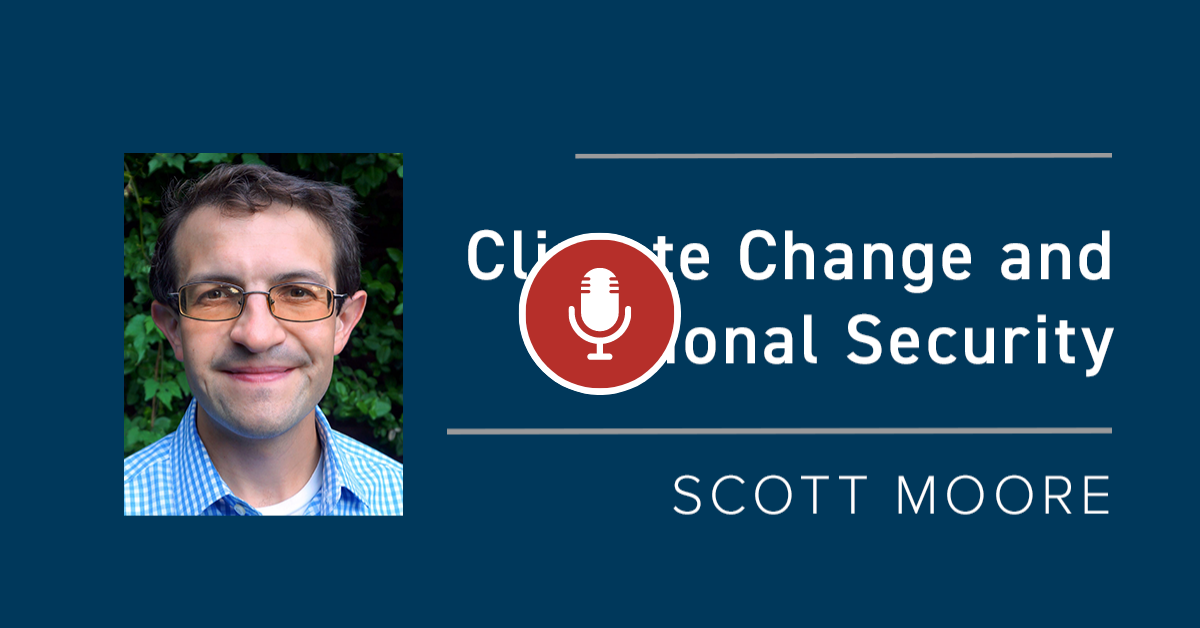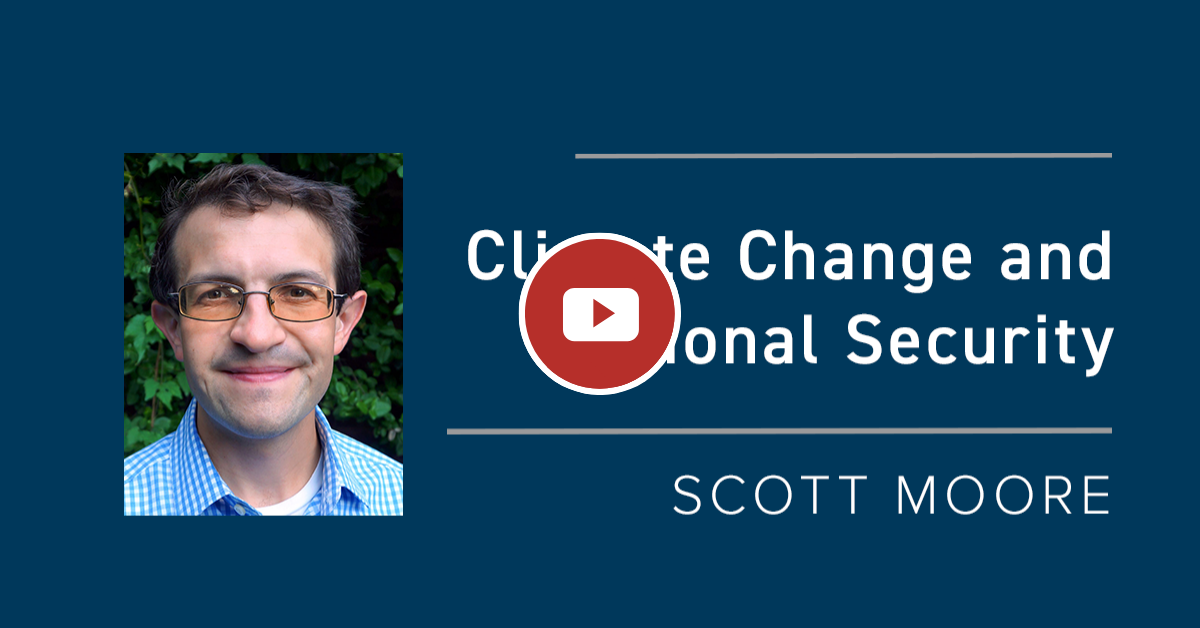Thursday, August 5, 2021 | 10:00 AM EDT - 10:30 AM EDT
Zoom interview | Scott Moore
The adverse effects of climate change are already being seen in crippling high temperatures, prolonged droughts, and a seemingly constant stream of extreme weather events testing countries all over the world. With the United States and China jointly accounting for over 40 percent of global greenhouse emissions and geopolitical competition intensifying, Dr. Scott Moore explains how domestic national security interests intersect with the bilateral conversation on climate. As each nation seeks to mitigate the worst effects of climate change within their borders, where is bilateral climate cooperation taking place now and how might it develop in the future?
In an interview conducted on August 5, 2021, Dr. Scott Moore discusses the implications for climate change on national security in both China and the United States.

Scott Moore
Scott Moore is a researcher and policymaker focused on emerging environmental and technological challenges, and the director of the Penn Global China Program at the University of Pennsylvania. His research focuses on environmental politics and policy, especially water resources. Dr. Moore worked with the World Bank Group’s Water Global Practice, where he co-led the Bank’s China Water Governance Study and co-authored two flagship reports. Previously, Dr. Moore served as the environment, science, technology, and health officer for China at the U.S. Department of State through a Council on Foreign Relations International Affairs Fellowship. Before joining State, he was Giorgio Ruffolo Postdoctoral Research Fellow at the Belfer Center for Science and International Affairs at Harvard University. Dr. Moore holds master’s and doctoral degrees from Oxford University and an undergraduate degree from Princeton. He is a Public Intellectuals Program Fellow at the National Committee on U.S.-China Relations.

